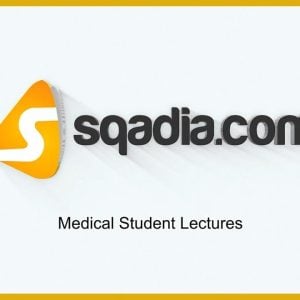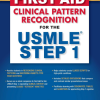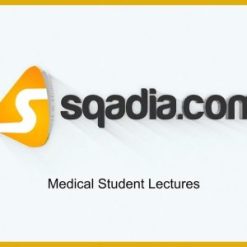sqadia.com has breathed life into the concept of V-learning™, with our medical editing team and professional educators, ensuring each lecture is a jackpot of information, packaged to you in an engaging manner.
Providing an experience, that is beyond the classroom with special focus on deepening the understanding of the clinical practice and medical examinations, in relation to real-life case studies, so students are able to truly learn and assimilate all concepts. Explore through our vast catalogue of over 1500+ video lectures, to learn a huge range of topics.
sqadia120
Sqadia Microbiology
Bite-sized videos packed with everything you need to know in just 120 seconds….Hence the name “sqadia120”. How genius! So, if you are looking for just an overview, we got you covered!
Exam Tips
Sqadia Microbiology Looking for important questions your examiner might ask in your oral exam? Or just need notes to go through a single topic? Just watch our exam tips! They are short videos that accompany our full length lectures. They act as visual notes, which are focusing on just a single topic.
Crash Courses
The course will give the student an overview of the curriculum and content. Such courses are quite useful if you want a quick introduction to a very extensive subject.For students, this is particularly useful tool up to the exam.
Topics:
- – Actinobacteria
- – Adaptive Immunity
- – Adaptive Immunity (Crash Course)
- – Alpha Proteobacteria
- – Anabolism
- – Antibacterial Therapy
- – Antibiotics in Clinical Use
- – Antibodies
- Sqadia Microbiology
- – Antimicrobial Chemotherapy
- – Antimicrobial Drugs_ Mechanism of Action
- – Antimicrobial Drugs_ Resistance
- – Antiviral Drugs
- – Arboviruses
- – Atypical Mycobacteria
- – B and T Cell Biology
- – B and T Cell Biology (Crash Course)
- – Bacteria Compared with Other Microorganisms
- – Bacteria of Minor Medical Importance
- – Bacterial Classification and Normal Flora
- – Bacterial Foodborne and Direct Contact Diseases
- – Bacterial Gene Structure and Transcription
- – Bacterial Genetics
- – Bacterial Genome Replication
- – Bacterial Growth
- – Bacterial Human Diseases
- – Bacterial Vaccines
- – BacterialTranscription and Translation
- – Beta, Delta and Epsilon-Proteobacteria
- – Catabolism
- – Classification of Medically Important Viruses
- – Clinical Microbiology and Immunology
- – Complex Bacterial Cellular Processes
- – Control of Microorganisms in Environment
- – Coronaviridae
- – Coronavirus (Animation)
- – Coronavirus Transmission
- – Diphtheria Toxin
- – DNA Enveloped Viruses – I
- – DNA Enveloped Viruses – II
- – DNA Non-Enveloped Viruses
- – Endocytic Pathways
- – Environmental Factors and Growth
- – Epidemiology and Public Health Microbiology
- – Eukaryotic and Archaeal Genome Expression
- – Eukaryotic and Archaeal Genome Replication
- – Evaluation of Antimicrobial Agent Effectiveness
- – Firmicutes
- – Fluoroquinolones
- – Food Microbes and Probiotics
- – Gamma Proteobacteria
- – Gene Therapy – I
- – Gene Therapy – II
- – Genetics
- – Genetics and Gene Therapy
- – Gram Negative Rods Related to the Respiratory Tract
- – Gram Positive Cocci
- – Gram-Negative Bacteria
- – Gram-Negative Rods Outside the Enteric Tract
- – Gram-Negative Rods Related to the Enteric Tract – I
- – Gram-Negative Rods Related to the Enteric Tract – II
- – Hepatitis Viruses
- – HIV Life Cycle
- – Host Defense Against Viruses
- – Host Defenses
- – Human and Animal Tumor Viruses
- – Human Immunodeficiency Virus – I
- – Human Immunodeficiency Virus – II
- – Immune Disorders
- – Immune Disorders (Crash Course)
- – Immune System_ Phagocytosis and Inflammation
- – Innate Host Resistance
- – Innate Immunity and Normal Flora
- – Laboratory Diagnosis
- – Laboratory Diagnosis of Viruses
- – Laboratory Investigation of Infection
- – Mastering Microbiology
- – Microbial Genomics
- – Microbial Growth
- – Microbial Metabolism
- – Microbial Taxonomy
- – Minor Viral Pathogens
- – Mycobacteria
- – Mycoplasma
- – Neisseria
- – Non-Spore Forming Gram Positive Rods
- – Pathogenesis – I
- – Pathogenesis – II
- – Pathogenesis – III
- – Pathogenicity of Infectious Disease
- – Plague
- – Recombinant DNA_ Construction and Expression
- – Recombinant DNA_ Developments and Techniques
- – Regulation of Bacterial Transcription
- – Regulation of Stress Response
- – Replication of Viruses
- – Rickettsiae
- – RNA Enveloped Viruses – I
- – RNA Enveloped Viruses – II
- – RNA Non-Enveloped Viruses – I
- – RNA Non-Enveloped Viruses – II
- – Slow Viruses and Prions
- – Spore Forming Gram Positive Rods
- – Sterilization and Disinfection
- – Strongyloidiasis
- – Structure and Classification of Bacteria
- – Structure of Viruses
- – Swine Flu (H1N1)
- – The Archaea
- – The Fungi
- – The Protists
- – The Protists (Crash Course)
- – Translation in Bacteria
- – Tuberculosis
- – Tumor Virus Induced Malignancy
- – Viral Diseases_ Air, Arthropod Borne and Zoonotic
- – Viral Foodborne and Direct Contact Diseases
- – Viral Vaccines
- Sqadia Microbiology










